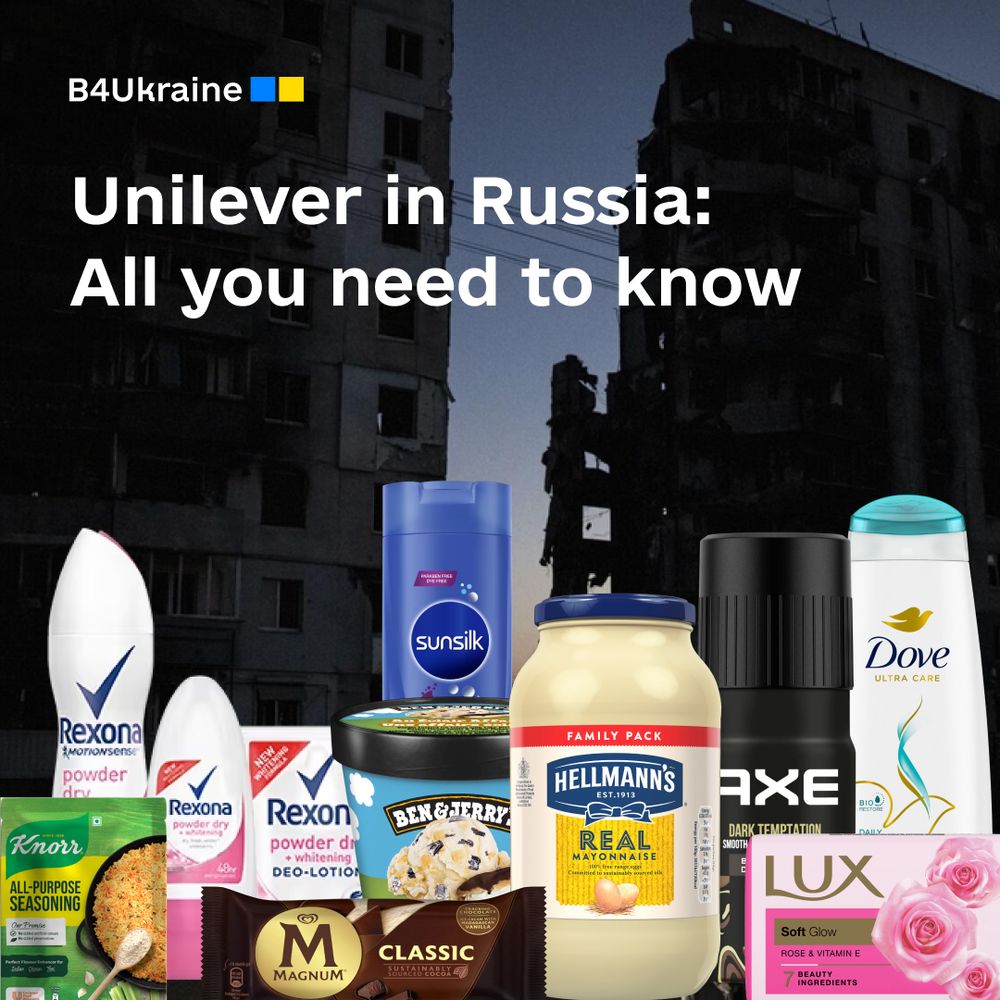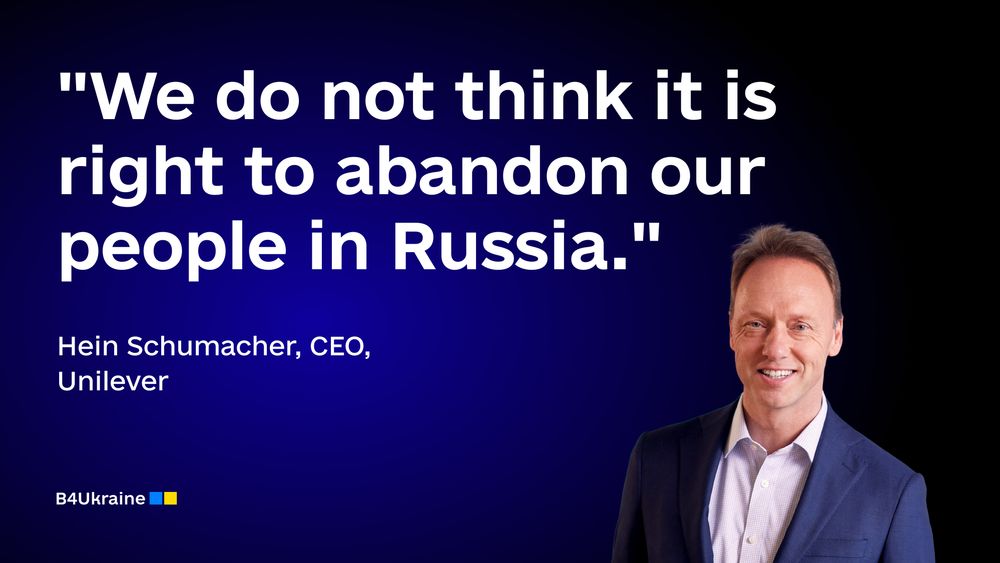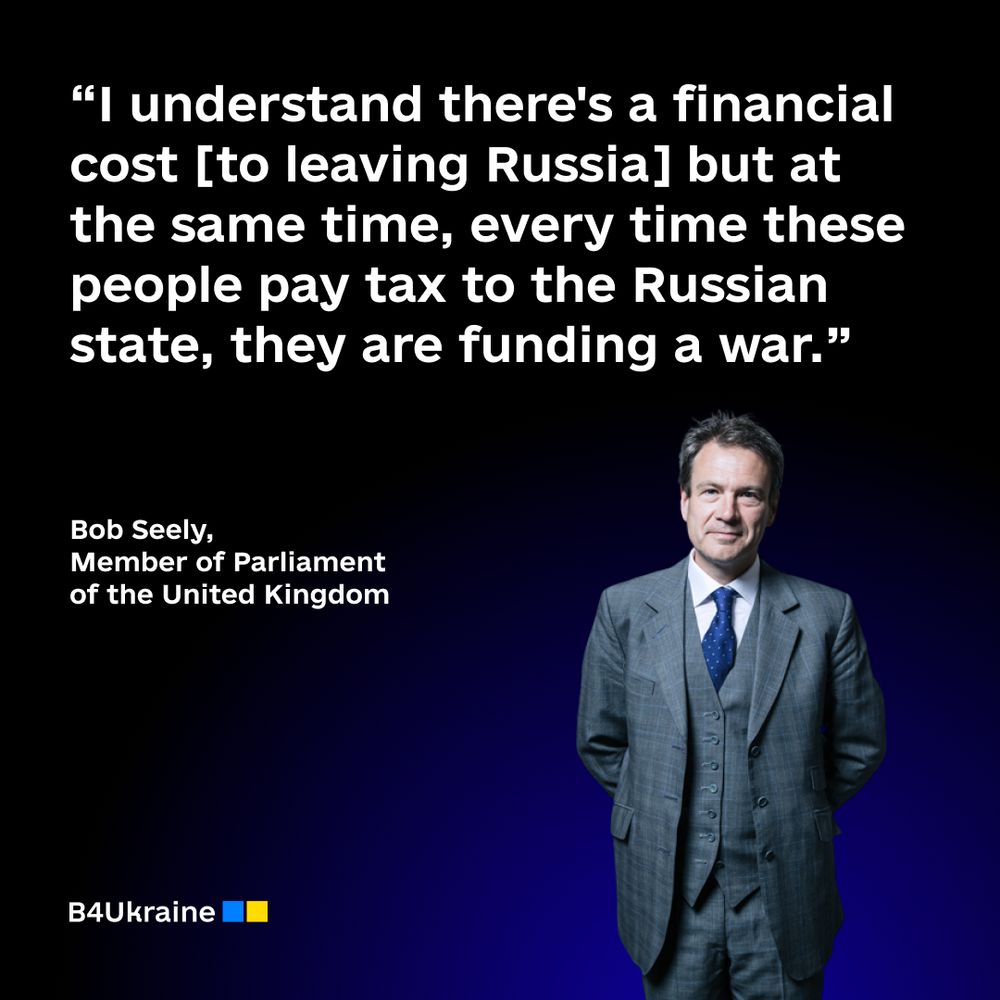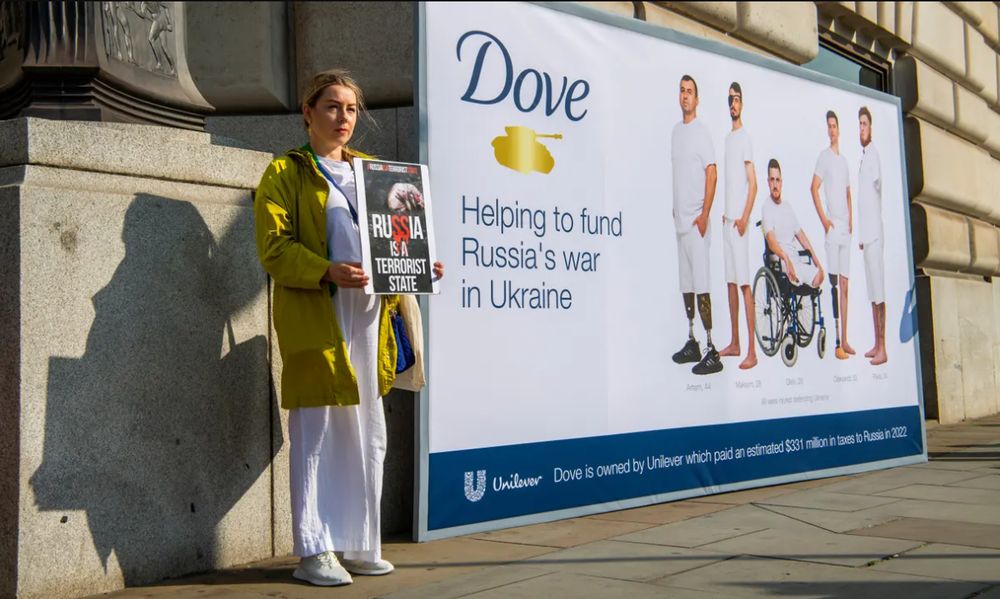
Unilever is a British consumer and household goods giant that operated in Russia until October 2024, despite condemning the 2022 invasion of Ukraine.
Unilever, headquartered in London, United Kingdom, and Rotterdam, Netherlands, owns popular brands such as Dove soap, Cornetto, Ben & Jerry’s, Marmite ice creams, Rexona deodorant, Hellmann’s mayonnaise, Sunsilk shampoo, Knorr soups, Persil detergent, and Domestos disinfectant.
With €775 million in assets and eight plants, Russia contributed 1.4% of its revenue.
Although Unilever halted new investments and ads in 2022, it continued business, citing “essential goods” and employee care.
In July 2023, Ukraine’s National Agency on Corruption Prevention (NACP) designated Unilever an “International Sponsor of War” on the basis of its “significant tax contribution” to the Russian state budget. According to data collected by the Kyiv School of Economics, Unilever earned $728 million in Russia in 2023, while paying roughly $33 million just in profit taxes to the Russian state.
Ukraine’s government move caused anger among British MPs, who criticized Unilever for its presence in Russia. A Conservative MP Bob Seely stated: “I understand there’s a financial cost [to leaving Russia] but at the same time, every time these people pay tax to the Russian state, they are funding a war.” Labour MP Chris Bryant said: “The business secretary should be naming and shaming companies still trading in Russia.”
The “international sponsor of war” designation also sparked public protests in London led by B4Ukraine’s coalition partner, the Ukraine Solidarity Project, as well as by local activist groups in Ukraine.
CEO Hein Schumacher defended staying, pointing to vague “containment actions.”
By March 2024, Unilever planned to spin off its ice cream unit but kept making Cornetto in Russia.
Finally, in October 2024, Unilever sold its Russian business to the Arnest Group for €520 million, successfully exiting the market and proving a responsible exit from Russia is still possible. Hein Schumacher said the company exited Russia because it was losing control of the business there.
Correspondence with company
Since February 2022, Unilever became subject to Russia’s Partial Mobilization Order obliging all companies, including foreign ones operating in Russia, to contribute directly to the war effort, including potentially through the conscription of Unilever’s 3,000-strong workforce.
In a letter to B4Ukraine, the company confirmed that it would allow its Russian workers to be conscripted if they are required to serve.
In its engagements with Unilever, B4Ukraine urged the company leadership to consider all possible options for a swift exit, including finding a suitable buyer for its Russia business operations as well as dropping the keys and leaving, while pursuing international arbitration.
• Latest news
- Unilever left Russia because it was losing control, CEO says — Bloomberg
- Unilever sells Russian business for €520mn — FT
- King urged to revoke royal warrants of Cadbury and Marmite-owner Unilever over Russia links — The Telegraph
- Unilever to keep making Russian ice cream after split — Bloomberg
- Unilever still earning millions in royalties from Russian subsidiary — NL Times



